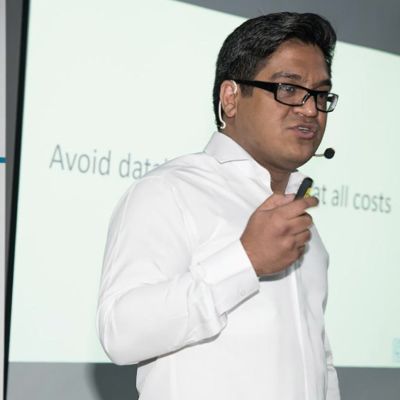Language, Mind and Perception
- Speakers
Hadi Ahmadi

- Description
Knowledge crunching through communication and collaboration with domain experts has been a hot topic in the DDD community, since the beginning. There have been many methods and techniques for facilitating this process, such as Event Storming and Domain Storytelling. Through these methods, we can learn more about the problem domain by gathering people together, exploring, and visualizing. Yet, We usually face significant problems, complexities, and obstacles in the Knowledge Crunching process. The fact is that every learning process contains inherent complexities. Communication difficulties, linguistic complexities, and cognitive biases are examples of these complexities.
It is widely known that learning is a bottleneck in complex domains, which is why this presentation explores some of the complexities, issues, and cognitive biases related to learning and communication.
In addition to those issues, there is another problem: Knowledge crunching is primarily viewed from the perspective of the development team. Within the DDD community, we primarily focus on improving the skills, knowledge, and awareness of developers, and we often forget about domain experts. Communication and learning are two-way processes. We believe that teaching Domain Experts to communicate effectively and making them aware of the problems and issues in this area can significantly improve the efficiency and effectiveness of the process.
With this objective in mind, this presentation is targeted not only at developers, but also all those involved in knowledge crunching processes.
- About Hadi Ahmadi

Independent Software Architect, Consultant, DDD Teacher, Co-Founder of DDD Iran CommunityTwitterLinkedIn
With over 10 years of experience in Software development, I am a Technical Leader, Architect and Designer. Passionate for Software design & Architecture (specially DDD, CQRS & Event Sourcing) and Agile practices such as TDD and BDD with an in depth knowledge of OOP, GoF Design Patterns, SOLID Principles and Integration Patterns.